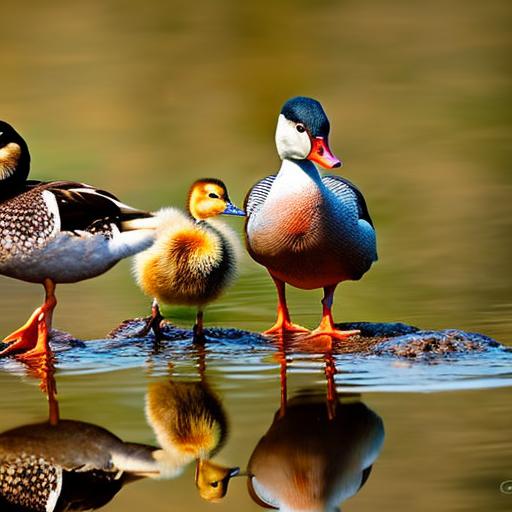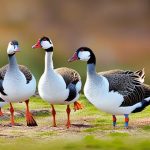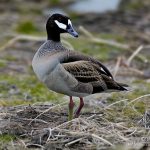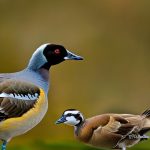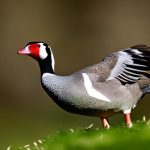Keeping ducks, turkeys, and geese together can be a rewarding and efficient way to raise poultry. These birds have different behaviors and requirements, but with proper planning and management, they can coexist harmoniously. Personally, I have had experience raising these birds together and have found it to be a successful endeavor.
Key Takeaways
- Keeping ducks, turkeys, and geese together is possible and can have benefits.
- Understanding the needs of each species is crucial for their well-being.
- Raising these birds together can lead to increased socialization and reduced stress.
- Challenges include potential aggression and different dietary requirements.
- Choosing the right breeds and designing a suitable habitat are important for success.
Understanding the Needs of Ducks, Turkeys, and Geese
Ducks, turkeys, and geese have different behaviors and requirements. Ducks are waterfowl and require access to water for swimming and foraging. They also need ample space to roam and graze. Turkeys are ground-dwelling birds that require a large area to roam and forage. They also need shelter from the elements. Geese are social birds that require companionship and space to graze. They also need access to water for swimming.
Providing adequate space and shelter is crucial for the well-being of these birds. Ducks need a pond or pool for swimming, as well as a secure shelter for protection from predators. Turkeys need a large outdoor area with access to grass and vegetation, as well as a sheltered area for roosting at night. Geese need a large grassy area with access to water for swimming, as well as a sheltered area for nesting.
Benefits of Raising Ducks, Turkeys, and Geese Together
Raising ducks, turkeys, and geese together can have several benefits. One benefit is natural pest control and fertilization. Ducks are excellent at controlling pests such as slugs and snails, while turkeys and geese can help control grasshoppers and other insects. Additionally, their droppings provide valuable fertilizer for the soil.
Another benefit is companionship and socialization for the birds. Ducks, turkeys, and geese are social animals that thrive in the company of others. By raising them together, they can form bonds and provide each other with companionship and stimulation.
Furthermore, raising these birds together can be an efficient use of space and resources. Ducks, turkeys, and geese have different foraging habits and can utilize different areas of the land. By allowing them to graze together, you can maximize the use of your available space and ensure that all areas are utilized effectively.
Challenges of Keeping Ducks, Turkeys, and Geese Together
While there are many benefits to raising ducks, turkeys, and geese together, there are also some challenges to consider. One challenge is the potential for aggression and bullying. Ducks can be aggressive towards smaller birds like turkeys and geese, especially during mating season. It is important to provide enough space and resources to minimize aggression.
Another challenge is the different dietary needs and feeding habits of these birds. Ducks are omnivores and require a diet that includes both animal protein and vegetation. Turkeys are primarily herbivores and require a diet that is high in protein. Geese are also herbivores but have different nutritional requirements than turkeys. It is important to provide a balanced diet for each bird to ensure their health and well-being.
Health concerns and disease transmission are also challenges when keeping ducks, turkeys, and geese together. These birds can be susceptible to various diseases, some of which can be transmitted between species. It is important to practice good biosecurity measures, such as regular cleaning and disinfection of housing areas, as well as regular health checks by a veterinarian.
Choosing the Right Breeds for Your Flock
When selecting breeds for a mixed flock of ducks, turkeys, and geese, it is important to consider their characteristics. Some breeds may be more aggressive or dominant than others, while some may have specific dietary or environmental requirements.
For ducks, breeds such as Pekin, Rouen, and Khaki Campbell are popular choices. These breeds are known for their calm temperament and ability to forage well. For turkeys, breeds such as Broad Breasted Bronze and Bourbon Red are commonly raised. These breeds are known for their size and meat quality. For geese, breeds such as Toulouse and Embden are popular choices. These breeds are known for their calm temperament and ability to graze well.
Designing the Perfect Habitat for Your Flock

Designing the perfect habitat for a mixed flock of ducks, turkeys, and geese requires careful planning and consideration. Housing options should provide adequate space and protection from predators. Outdoor space should be large enough to allow for grazing and foraging. Fencing should be secure to prevent escape and protect the birds from predators.
Nesting and roosting areas should also be provided. Ducks require nesting boxes or shelters near water for egg laying. Turkeys require roosting poles or platforms in their sheltered area. Geese require nesting areas with access to water for egg laying.
Feeding and Watering Your Flock
Feeding a mixed flock of ducks, turkeys, and geese requires providing a balanced diet that meets the nutritional needs of each bird. Ducks require a diet that includes both animal protein and vegetation. Turkeys require a diet that is high in protein, such as turkey feed or a mix of grains and legumes. Geese require a diet that is high in fiber, such as grass, hay, or goose feed.
Watering the flock is also important, especially for ducks and geese that require access to water for swimming. Providing a clean and accessible water source is crucial for their health and well-being.
Health Considerations for Ducks, Turkeys, and Geese
Keeping a mixed flock of ducks, turkeys, and geese requires regular health checks and preventative measures. Common health issues for these birds include respiratory infections, parasites, and nutritional deficiencies. It is important to monitor the flock for any signs of illness and seek veterinary care if necessary.
Regular vaccinations and deworming should also be part of the flock management plan. Consult with a veterinarian to determine the appropriate vaccination schedule and deworming protocol for your birds.
Handling and Managing Your Flock
Handling and managing a mixed flock of ducks, turkeys, and geese requires patience and training. These birds can be skittish or aggressive if not properly handled. It is important to spend time with them regularly to build trust and establish a routine.
Strategies for managing aggression and bullying include providing enough space and resources for each bird, as well as separating any aggressive individuals if necessary. Training techniques such as positive reinforcement can also be used to discourage aggressive behavior.
The Joy of Keeping Ducks, Turkeys, and Geese Together
In conclusion, keeping ducks, turkeys, and geese together can be a rewarding and efficient way to raise poultry. While there are challenges to consider, such as aggression and different dietary needs, with proper planning and management, these birds can coexist harmoniously. The benefits of natural pest control, companionship, and efficient use of space make it a worthwhile endeavor. Personally, I have found joy in raising a mixed flock of ducks, turkeys, and geese, and I encourage others to explore this option as well.
If you’re considering keeping ducks, turkeys, and geese together, it’s important to understand their compatibility and specific needs. While these birds can coexist harmoniously, there are certain factors to consider. In a related article on PoultryWizard.com, you can find valuable insights on how to successfully keep ducks, turkeys, and geese together. The article provides helpful tips on housing requirements, feeding habits, and potential challenges that may arise. To learn more about this topic, check out the article here.
Meet Walter, the feathered-friend fanatic of Florida! Nestled in the sunshine state, Walter struts through life with his feathered companions, clucking his way to happiness. With a coop that’s fancier than a five-star hotel, he’s the Don Juan of the chicken world. When he’s not teaching his hens to do the cha-cha, you’ll find him in a heated debate with his prized rooster, Sir Clucks-a-Lot. Walter’s poultry passion is no yolk; he’s the sunny-side-up guy you never knew you needed in your flock of friends!

